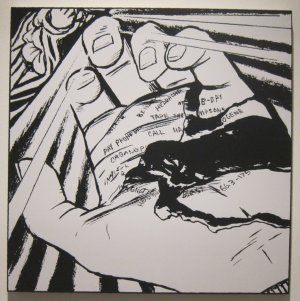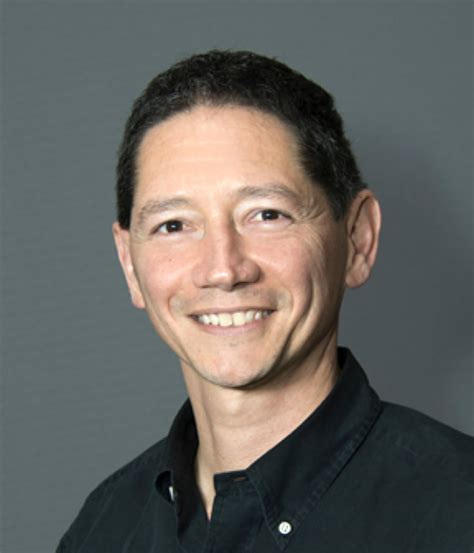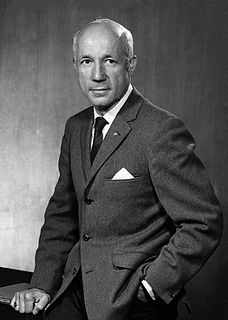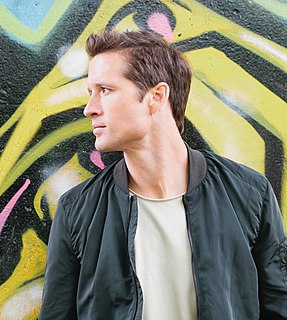A Quote by Al Gore
Science has a culture that is inherently cautious and that is normally not a bad thing. You could even say conservative, because of the peer review process and because the scientific method prizes uncertainty and penalises anyone who goes out on any sort of a limb that is not held in place by abundant and well-documented evidence.
Related Quotes
One thing I noticed over time is that if I got a bad review, usually the bad part of it was at the very end. I could tell that nobody read the whole review because they would just say, "It was great to see the review!" In a way, my brain shuts down at the end of an article. It doesn't really want to go to the end.
Science advances by trial and error. When mistakes are made, the peer-review publication process usually roots them out. Cuccinelli's version of the scientific process would be "make an error and go to trial." Einstein did not arrive at E=mc2 in his first attempt. If he were working in the state of Virginia under Cuccinelli today, he could be jailed for his initial mistakes and perhaps never achieve that landmark equation.
How could you ask me to believe in God when there's absolutely no evidence that I can see? I do believe in the beauty and the awe-inspiring mystery of the science that's out there that we haven't discovered yet, that there are scientific explanations for phenomena that we call mystical because we don't know any better.
Science and vision are not opposites or even at odds. They need each other. I sometimes hear other startup folks say something along the lines of: 'If entrepreneurship was a science, then anyone could do it.' I'd like to point out that even science is a science, and still very few people can do it, let alone do it well.
Philosophers of science constantly discuss theories and representation of reality, but say almost nothing about experiment, technology, or the use of knowledge to alter the world. This is odd, because 'experimental method' used to be just another name for scientific method.... I hope [to] initiate a Back-to-Bacon movement, in which we attend more seriously to experimental science. Experimentation has a life of its own.
When people think science and cooking, they have no idea that it's not correctly expressed. We're actually applying the scientific method. People think chemistry and physics are science, but the scientific method is something else.... It's the science that the world of cooking generates: science of butter; science of the croissant.
How I was raised was, there were no rules - nothing like that. If I wanted to take a drug because I was in school and everybody was doing it, I could go to my parents and say, "I really want to try this." And they'd say, "If you do this, O.K., but this is what can happen to you..." They'd say, "Don't get it in the streets, because it could be really bad and make you freak out. Don't take it in a crowded place, because you'll panic."
Under true peer-review...a panel of reviewers must accept a study before it can be published in a scientific journal. If the reviewers have objections the author must answer them or change the article to take reviewers' objections into account. Under the IPCC review process, the authors are at liberty to ignore criticisms.
'This thing I feel, I can't name it straight out but it seems important, do you feel it too?' — this sort of direct question is not for the squeamish. For one thing, it's perilously close to 'Do you like me? Please like me,' which you know quite well that 99% of all the interhuman manipulation and bullshit gamesmanship that goes on goes on precisely because the idea of saying this sort of thing straight out is regarded as somehow obscene.
Chauvet Cave is rather like the awakening of the modern human soul or I would say the awakening of modern human culture. Because Neanderthal men who still rode the landscape parallel to the people who did these paintings didn't have culture. There's no evidence of culture, no symbolic depiction, no evidence of music, no evidence of sculptures, no evidence of religious beliefs.
It seems to me that there is a good deal of ballyhoo about scientific method. I venture to think that the people who talk most about it are the people who do least about it. Scientific method is what working scientists do, not what other people or even they themselves may say about it. No working scientist, when he plans an experiment in the laboratory, asks himself whether he is being properly scientific, nor is he interested in whatever method he may be using as method.


































